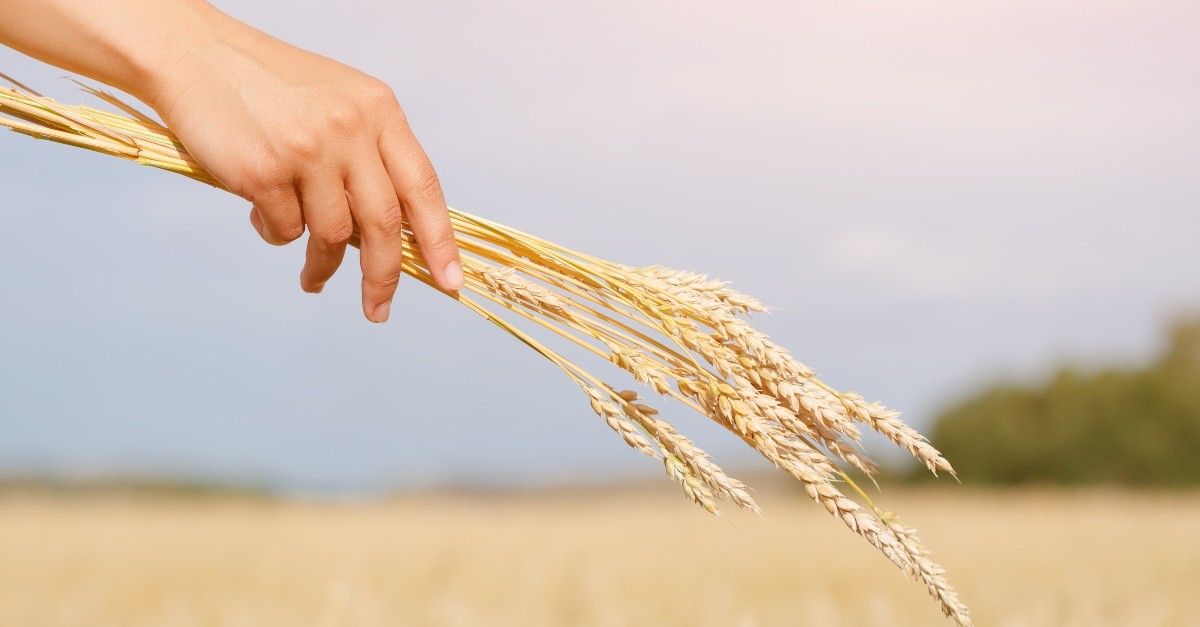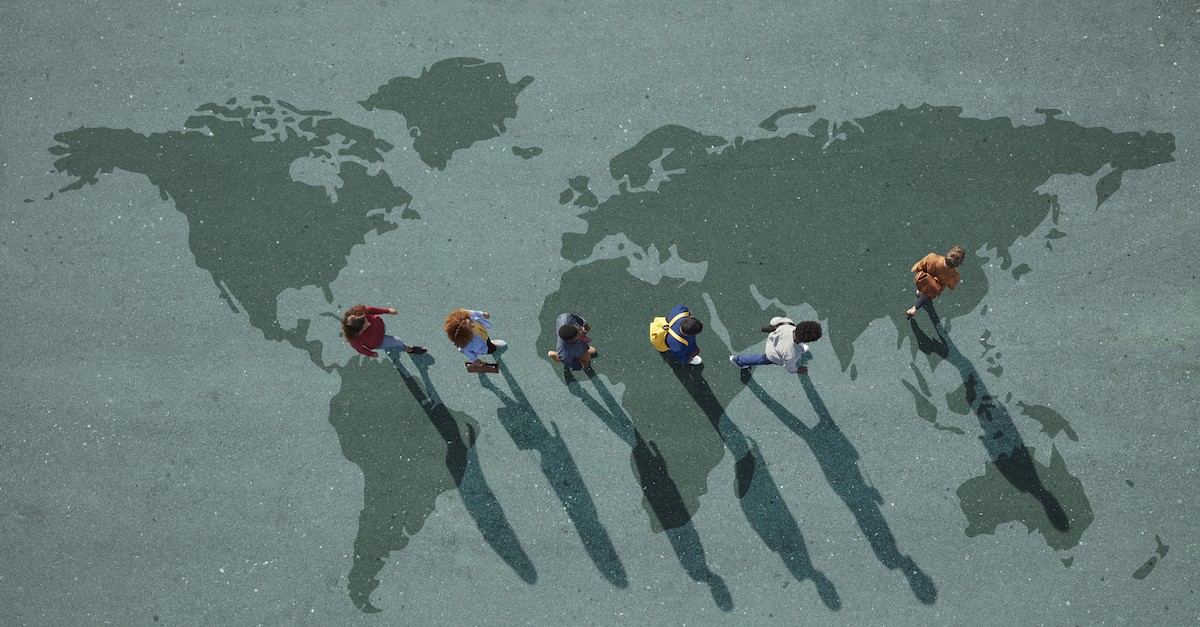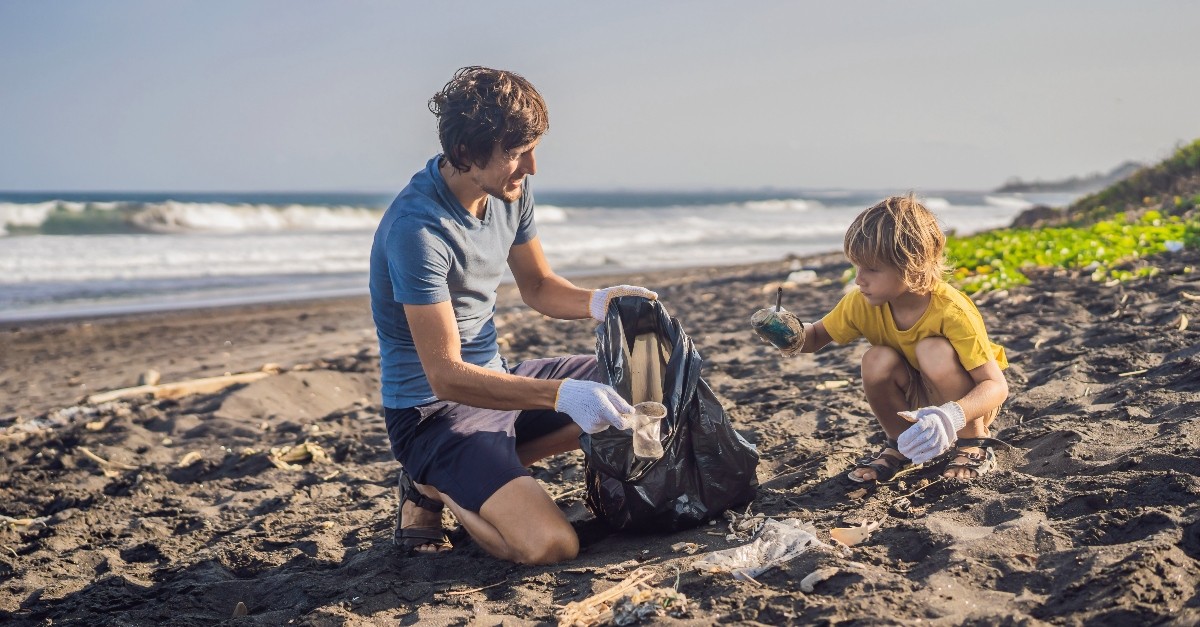
This world is not our home. This world will one day be transformed into what Revelation declares as the New Heaven and New Earth. The temporary and broken world, one where death and entropy reigns, will pass away in a flash of fire (2 Peter 3:10).
We will then enjoy a world without sin, a perfect and complete realm of righteousness and justice with God at the center.
Since this world is passing away, some people mistakenly believe we shouldn’t care how our actions impact the environment around us. This idea is problematic.
To give a comparison, the Bible tells us to feed the hungry. It’s not a waste just because people will be hungry again or die eventually. The temporary nature of this world doesn’t excuse bad behavior toward people, nations, or communities.
The same should be said for the environment. God created this world and said it was good. He reveals himself through nature. All creation also echoes the longing to be free of corruption and the oppression of sin. Should we then abuse creation? Of course not.
Here are seven ways we care for the environment when we know this world is not our home.
Photo Credit: ©iStock/Getty Images Plus/PeopleImages

1. Stewardship of Creation as Our Purpose and Future
Good stewardship of creation was part of the original purpose for humanity.
When the Father created humanity on the sixth day of Creation, he gave us a very important role in this world. Upon making mankind in his image, God states we would be in his likeness so we would rule over the animals and creatures (Genesis 1:26).
From the very beginning, the Bible establishes humanity’s role as stewards over God’s creation. We were entrusted with dominion over the Earth.
This rule implies responsibility and care, not reckless exploitation. Abuse of the environment and creation is not a sign of the love and righteousness of God but of the Fall.
As further evidence, when we go forward into the Book of Revelation, we see God judges the Earth. For those who follow God and are faithful to him, there will be a reward.
But God’s wrath comes against those who disobey him, specifically mentioning how God will destroy those who destroy the Earth (Revelation 11:18). Destroying the Earth could include a number of different actions, but surely abusing the environment is a form of sin and violence.
Being a good steward of our possessions means not using things for our own pleasure. Whether our house or car, we should be seeking ways to take care of God’s blessings, however temporary, and using them for eternal good through generosity.
The environment is no different, and we should take care to be mindful of taking care of the creation around us.
Then God said, “Let us make mankind in our image, in our likeness, so that they may rule over the fish in the sea and the birds in the sky, over the livestock and all the wild animals, and over all the creatures that move along the ground” (Genesis 1:26).
Photo Credit: ©GettyImages/Nastco

2. Give the Land Rest
When Moses brought the Ten Commandments down from Mount Sinai, one of the main commandments was to take a Sabbath rest.
Once every week, on Saturday, people were supposed to take a day of rest from their labors. This was good for people and a testament to their trust in God as the provider.
The Sabbath concept wasn’t only for the people. The Bible contains teachings about giving the land rest as an essential component of responsible stewardship and sustainable agricultural practices. The principle of letting the land lie fallow or granting it rest is rooted in biblical wisdom.
The first Sabbath rest for the land happened every seven years. For six years, the Israelites were to plant and gather their crops but leave the land alone in the seventh year (Leviticus 25). God promised an extra blessing in the sixth year that would last until they planted and harvested again.
We know now how leaving the land alone has several benefits, including soil rejuvenation, prevention of soil erosion, and improved soil fertility.
It also supports biodiversity and helps maintain a sustainable ecosystem. It allows the soil to recover from intensive cultivation, reduces the need for excessive chemical fertilizers, and promotes the health of the land.
When we care for the land and soil, we are also doing so on behalf of future generations, our children, and those after them. Ensuring the long-term health of the land is loving and merciful to others.
“For six years sow your fields, and for six years prune your vineyards and gather their crops. But in the seventh year, the land is to have a year of sabbath rest, a sabbath to the Lord” (Leviticus 25:3-4).
Photo Credit: ©Getty Images/Mikhail Azarov

3. Respect for All Forms of Life
While humans are given a unique role as stewards, the Bible teaches that all living creatures have inherent value and should be treated with respect and care.
In the creation narrative, God calls each aspect of His creation “good.” This includes the creation of animals and all living creatures.
The Psalms celebrate God’s creation and his providence for all living beings, acknowledging how all creatures look to God for sustenance.
Jesus reiterates this in the Sermon on the Mount, how God cares for the birds and the flowers. As God’s representatives on Earth, we should also steward and care for his creation.
Jonah the prophet is frustrated that God would show mercy to the city of Nineveh, a violent and warring city, when they repented. God expresses the value of life of the people in the city, however sinful they once were, and God even mentions the animals (Jonah 4:11).
One odd story is when Balaam’s donkey speaks to him (Numbers 22). The donkey saw the angel with a sword when Balaam didn’t, and Balaam beat the donkey.
When the donkey speaks, he complains about Balaam’s cruelty. Balaam is a biblical villain, and he makes an excuse instead of repenting.
When looking at the future Kingdom, one of the signs of God’s righteousness and the perfect world includes animals. The lion shall lie down with the lamb and the leopard live with the goat (Isaiah 11:6-9).
We should care for the value and life of animals as part of God’s creation. Even when the Bible speaks of sacrificing or eating animals, it is to be done with mercy and good stewardship, looking ahead to when we all live in harmony.
“The righteous care for the needs of their animals, but the kindest acts of the wicked are cruel” (Proverbs 12:10).
Photo Credit: ©GettyImages/KlausVedfelt

4. Avoid Waste
Waste shows a lack of stewardship. Part of dealing with creation is using elements to build and create for our protection and community. However, if we are wasteful with environmental resources, we reveal a heart of greed or lack of care for what is around us.
Waste also disregards the generations coming after us. Our children and grandchildren will have to clean up after us if we are a wasteful generation, or perhaps they won’t have what they need if we use it all in our ignorance or selfishness.
In the Old Testament, the story of the Israelites in the wilderness (Exodus 16) illustrates the principle of avoiding waste.
God provided manna as sustenance for the Israelites, but He instructed them to gather only what they needed for each day. Those who hoarded the manna found it spoiled, teaching a lesson about the consequences of greed and waste.
When Jesus miraculously fed a large crowd, the disciples didn’t leave all the extra food on the ground to rot. They picked up twelve basketfuls.
Hoarding is one element of waste from the Bible. Jesus told a parable of a man who had a huge harvest one year. So, he built bigger barns to hold it all.
He died that night, and God calls him a fool for a couple of reasons. First, he wasn’t able to enjoy all the abundance. Second, he could have given all the extra to the poor and get reward in heaven. With his greed, he got neither.
For us, being satisfied with less allows us to be less wasteful, more thankful, more responsible, and more generous with others and receive a reward in heaven.
“They all ate and were satisfied, and the disciples picked up twelve basketfuls of broken pieces that were left over” (Matthew 14:20).
Photo Credit: ©iStock/Getty Images Plus/galitskaya

5. Justice for the Poor
Continuing with the same theme, the Bible contains teachings that highlight the interconnectedness between our treatment of the poor, our stewardship of the land, and the well-being of the environment.
These teachings emphasize the profound impact of social justice and ethical considerations on the state of the natural world.
In the biblical worldview, God’s covenant with His people extends not only to human relationships but also to the land. God not only delivered the Israelites from Egypt but brought them to a Promised Land.
Disobedience and mistreatment of the poor were seen as violations of this covenant, leading to negative consequences not only for individuals but also for the land itself (Leviticus 26:33; Isaiah 24:4-6).
The Year of Jubilee (Leviticus 25) connected rest of the land (the 49th year, seven Sabbath year) to the idea of social justice. While the land rested, the Year of Jubilee canceled debts and freed slaves with mercy and justice.
If someone had lost their land due to bad decisions or injustice, their land was restored back to them in the Year of Jubilee.
The Hebrew prophets often issued warnings about the consequences of social injustice, including mistreatment of the poor. These warnings included ecological disasters, droughts, and famine as a result of disobedience and oppression (Amos 5:11-12, Isaiah 5:8-10, Jeremiah 12:4).
God’s provision through nature is a gift, and when we destroy the image of the Creator by oppressing the poor (people made in his sacred likeness), then his judgment includes removing the abundance of his creation.
Let us remember to show mercy to the broken, the hurting, the orphan, and the widow to further enjoy God’s beautiful creation.
How long will the land mourn, and the herbs of every field wither? The beasts and birds are consumed, for the wickedness of those who dwell there, because they said, “He will not see our final end” (Jeremiah 12:4).
Photo Credit: ©GettyImages/wildpixel

6. Contentment
Realizing this world is not our home, we understand the foolish idea of gathering possessions and wealth for ourselves while on this Earth.
Jesus teaches us to not lay up for ourselves treasure here on Earth, where it passes away, and people can steal it. However, we should lay up treasure in heaven by giving to others (Luke 12).
The Apostle Paul writes to Timothy how godliness with contentment is a treasure in and of itself. We brought nothing into this world, Paul says, and we’ll take nothing out. He states we should be content with having food and clothing (1 Timothy 6:6-8).
He doesn’t even mention shelter! This is related to Jesus speaking in the Sermon on the Mount, not to worry about what we will eat and wear. God will take care of those needs (Matthew 6).
Realizing how temporary possessions are lifts our vision of what matters, what is truly valuable. And realizing God will provide for our needs, we are free from worry.
These two truths allow us to be generous and give to others and their needs. We can walk in the teachings of Jesus, like when he says when we have two shirts, we can give one to someone who has no shirt (Luke 3:11).
This contentment ensures that we will not take from the environment more than what we need, caring for creation as we should and being good stewards.
I am not saying this because I am in need, for I have learned to be content whatever the circumstances. I know what it is to be in need, and I know what it is to have plenty. I have learned the secret of being content in any and every situation, whether well fed or hungry, whether living in plenty or in want (Philippians 4:11-12).
Photo Credit: ©iStock/Getty Images Plus/VacharapongW

7. Keep Our Hands from Violence
Just as oppression of the poor is abusing the very image of the Creator, so is violence and murder.
The Bible conveys a strong message about the connection between violence, bloodshed, and the negative impact on the land and the Earth.
These teachings emphasize the ecological and moral consequences of violence, highlighting the importance of peace and responsible stewardship of the environment.
In the story of Cain and Abel, after Cain murders his brother, Abel, God says Abel’s brother’s blood cries out to God from the ground, underscoring the idea that violence leaves a lasting impact on the land, which is personified as responding to the bloodshed.
A few chapters later in Genesis, God judges the whole Earth with a great flood. The Bible says the whole earth was filled with evil and specifically violence (Genesis 6:11).
Just as the Sabbath rest is one of the original Ten Commandments, so is the law to not murder others. Jesus explains that the root of murder is hate in our hearts, and his instruction is to not hate and therefore not bring violence to anyone else.
Further, in the Beatitudes, he teaches the value of being a peacemaker, and pursuing righteousness (Matthew 5:9). Hate begets hate, and violence begets violence, and blood defiles the Earth and the land.
When we are peacemakers, we stem this tide and resist the momentum of hate and violence, promoting harmony with a sure belief in the sacred image of God in all people, from the unborn to the old. This preserves human life and the life of the environment all around us.
“What have you done? Listen! Your brother's blood cries out to me from the ground. Now you are under a curse and driven from the ground, which opened its mouth to receive your brother's blood from your hand” (Genesis 4:10-11).
For further reading:
What Does the Bible Say about Climate Change?
What Does the Bible Say about the New Heaven and the New Earth?
What Does the Bible Say About the End of the World?
Photo Credit: ©iStock/Getty Images Plus/RomoloTavani

Originally published Monday, 09 October 2023.
